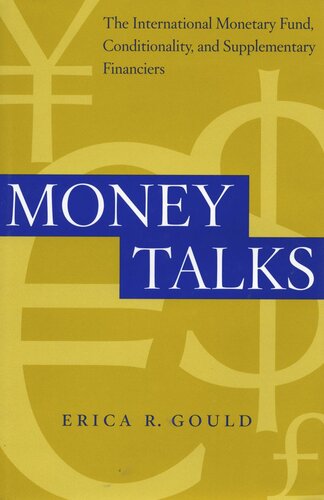

Most ebook files are in PDF format, so you can easily read them using various software such as Foxit Reader or directly on the Google Chrome browser.
Some ebook files are released by publishers in other formats such as .awz, .mobi, .epub, .fb2, etc. You may need to install specific software to read these formats on mobile/PC, such as Calibre.
Please read the tutorial at this link: https://ebookbell.com/faq
We offer FREE conversion to the popular formats you request; however, this may take some time. Therefore, right after payment, please email us, and we will try to provide the service as quickly as possible.
For some exceptional file formats or broken links (if any), please refrain from opening any disputes. Instead, email us first, and we will try to assist within a maximum of 6 hours.
EbookBell Team

4.1
40 reviewsMoney Talks argues that, contrary to conventional explanations, the changes in the terms of International Monetary Fund (IMF) conditionality agreements are best explained by shifts in the sources for borrowing state financing. The Fund regularly relies on external financing to supplement its loans to countries facing payment imbalances. As a result, these supplementary financiers are able to exercise leverage over the Fund and the design of its conditionality programs. The book's conclusions are supported by rich empirical material gathered directly from the IMF archives, including descriptive statistics and statistical analyses using an original data set, which is the first to code the terms of the 249 Fund conditionality agreements from 1952—when Fund conditionality began—to 1995, as well as case studies substantiated with archival and interview evidence.